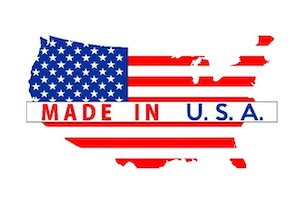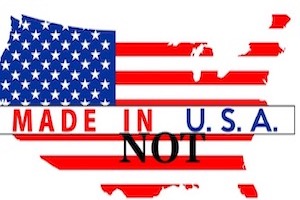Chemical Classification, It Matters, Now More Than Ever-To Most

If you have a company that imports chemicals – whether they are used as raw materials or components for onward manufacturing, or finished goods containing chemical components – you have been facing significant challenges over the last half-dozen years. Some of these challenges include the trade wars with China (I’m looking at you, Section 301) and the disruptive impact of COVID-19 to global supply chains. In response to these challenges, you have maybe modified your supply chain to reduce your dependence on Chinese chemical imports. Or perhaps your supply chain was not largely affected by Section 301 tariffs (if so, consider yourself lucky – and may your luck hold!).
Made in the USA Labeling Rule – What There is to Know About Increased Enforcement Within the Federal Trade Commission

The Federal Trade Commission (“FTC”) has recently begun placing more of an emphasis on Made in the USA (“MUSA”) labeling violations. A MUSA violation occurs when a company labels its product with “Made in the United States” or “USA Made Products,” among other similar phrases, when in fact the country of origin (“COO”) of the […]
Federal Trade Commission Puts Teeth into False ‘Made in USA’ Claims Enforcement

The U.S Federal Trade Commission (FTC) recently codified product labelling rules related to unqualified “Made in USA” (MUSA) claims under 16 CFR Part 323
2022 Harmonized System Nomenclature – Any Significant Changes?

By: Brandon French, Associate Attorney, BLG The new 2022 Harmonized System (HS) nomenclature has been accepted by all parties at the Harmonized System Convention. The HS nomenclature is used as a basis for the classification of goods around the globe. Every six months, the HS Committee of the World Customs Organization (WCO) meets to discuss potential […]
HTS Classification Mistakes Before Customs Comes Knocking

By: Bob Brewer, Braumiller Law Group & Brad Menard, VP of Braumiller Consulting Group It’s a fact of life in international trade, many shipments, on a daily basis, arrive at ports in the U.S. with the wrong tariff classification code assigned to the product. No big deal? Not quite, and I can tell you this, from the […]
Classification: A Necessary Evil or Helpful Tool?

Determining the correct classification of goods is arguably paramount to any good trade compliance program. However, many companies misclassify their goods at an astonishing rate. While this may be good for business for trade compliance consultants like myself, it isn’t good when it comes time for our client’s Customs audits.
Which Way with Huawei?

The Bureau of Industry & Security (BIS) of the Department of Commerce announced that it was adding Huawei Technologies Co., Ltd. to the Entity List on May 16, 2019. Not just this Huawei company in China, but also 68 non-US affiliates of Huawei located in 26 countries.
A.I. and Classification: Could the Robots Do a Better Job?

Are the robots taking over? Last week, I stopped by McDonalds, placed my order on a computer, pulled out my phone and used an app to make a doctor’s appointment, and then later deposited a check through a different app on my phone. All of these jobs that used to be performed by humans are now being taken over by technology.
Modernizing the World of Trade: CBP’s 21st Century Framework

Customs and Border Protection (CBP) has taken the initiative to modernize its current trade environment. The purpose of the initiative is to realign CBP’s current trade policies and procedures with the development of new industries, technology, and modes of conducting business.
